New annual symposium celebrates 30 years of AI at Michigan
The Michigan AI Lab at CSE celebrated 30 years of leading research with its first annual AI Symposium, AI for Society.
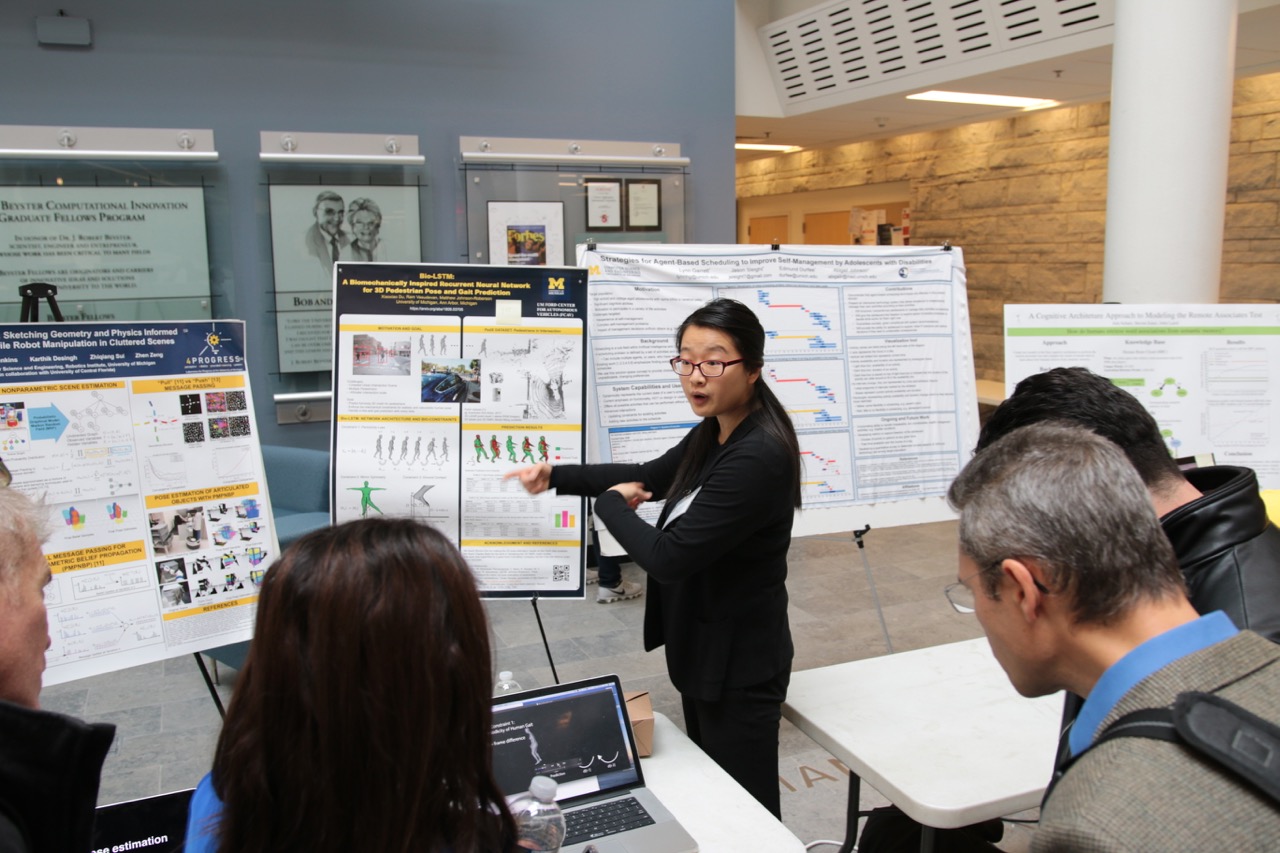
 Enlarge
Enlarge
The Michigan AI Lab celebrated 30 years of leading research with its first annual AI Symposium, AI for Society. The event welcomed 250 participants from U-M and around the country for a day of presentations, panel discussions, and poster sessions. Presenters gave a broad picture of AI’s applications in the modern world, from finance to health, art to data science.
The symposium, open to the public, aimed to bring together participants from both academia and industry with an interest in the foundations or real-life applications of artificial intelligence. Leading the research talks and panel sessions were several faculty from the lab’s nineteen core members.
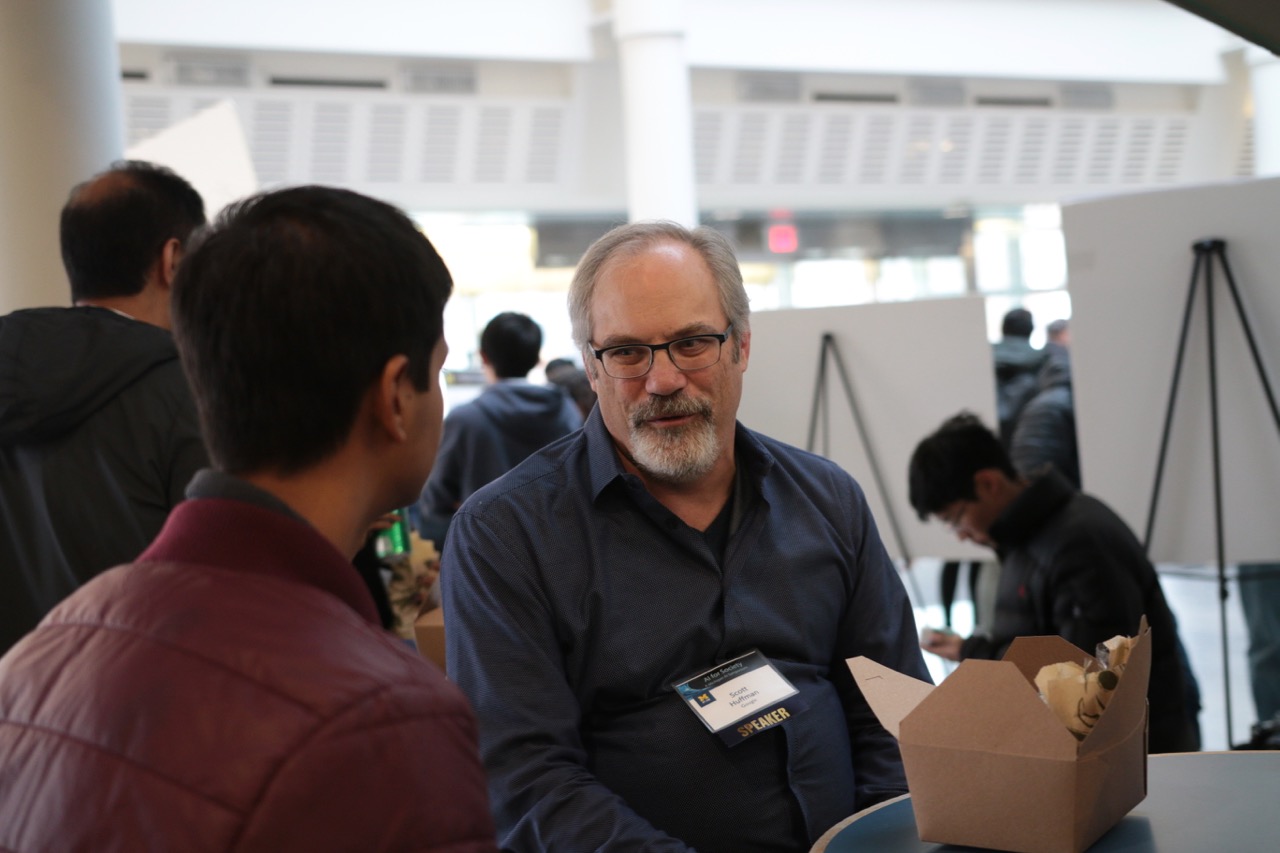
 Enlarge
Enlarge
The event featured U-M alumnus Scott Huffman (CSE MSE 1990, Ph.D. 1994) as keynote speaker, who spoke about how to build real-world AI products. Huffman is VP of Engineering for Google Assistant, Google’s conversational AI that interactively helps people find answers on speakers, smart displays, smartphones, and vehicles.
Symposium activities included 10 technical demos, 13 unconference sessions, a panel, and a poster session. The panel, chaired by Prof. Michael Cafarella, brought together entrepreneurs who are innovating in AI. The unconference sessions addressed subjects including ethics in AI, AI’s place in everyday life, bias and data, self-driving cars, and other subjects of contemporary interest.
The poster session featured over 40 displays and demos from Michigan AI’s graduate students and their faculty advisors. The top presentations were recognized at the end of the session, and the inaugural winners in each category were:
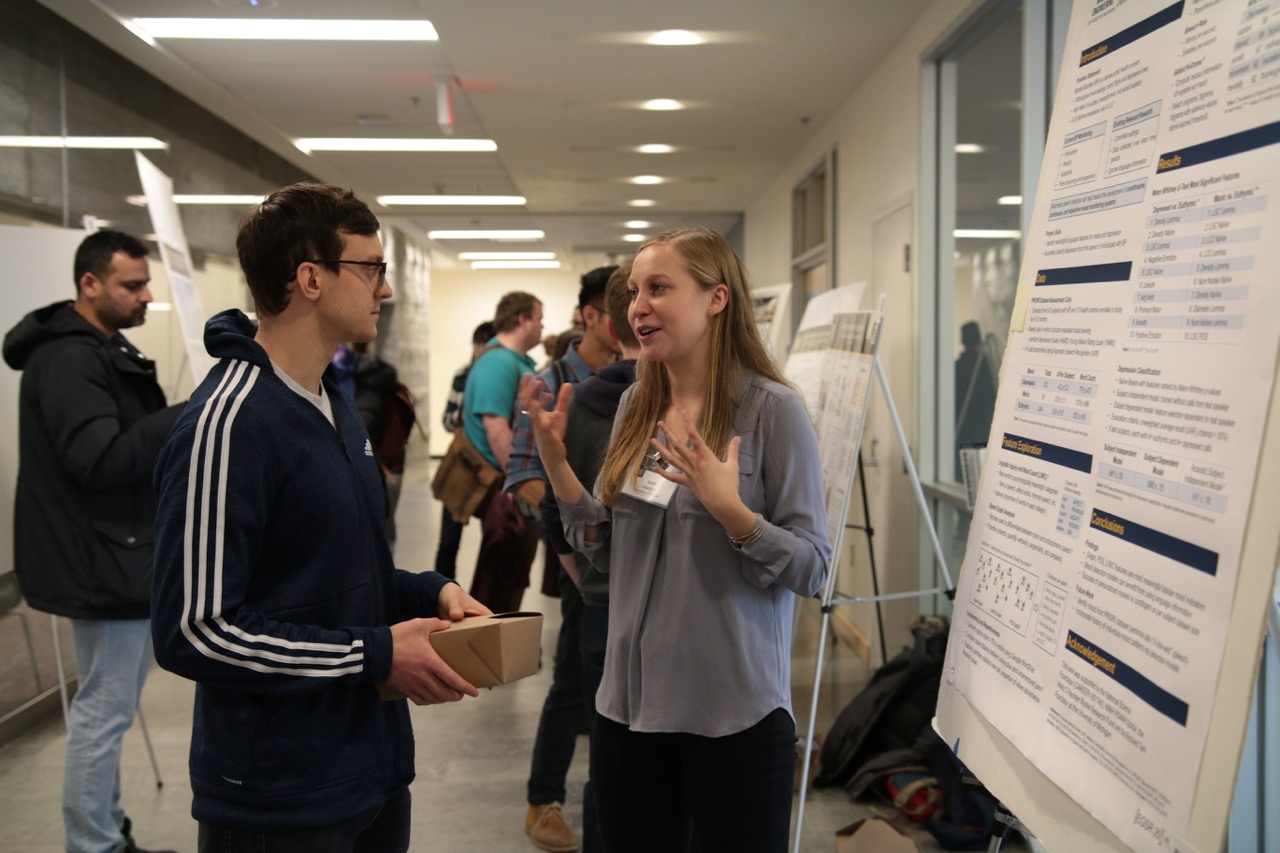
 Enlarge
Enlarge
Best Poster
“A Learning and Masking Approach to Secure Learning,” by Linh Nguyen (U-M, Business School), Sky Wang (U-M, CSE), Arunesh Sinha (U-M, CSE)
Best Poster
“Mood State Prediction for Individuals with Bipolar Disorder,” by Katie Matton, Emily Mower Provost (U-M, CSE)
Best Demo
“Automatic Detection of Fake News,” by Veronica Perez-Rosas (U-M, CSE), Bennett Kleinberg (Univ. of Amsterdam, Dept. of Psychology), Alexandra Lefevre (U-M, CSE), Rada Mihalcea (U-M, CSE)
Most Impactful to Society
“Predicting Human Activities from User-Generated Text,” by Steven Wilson (U-M, CSE), Rada Mihalcea (U-M, CSE)
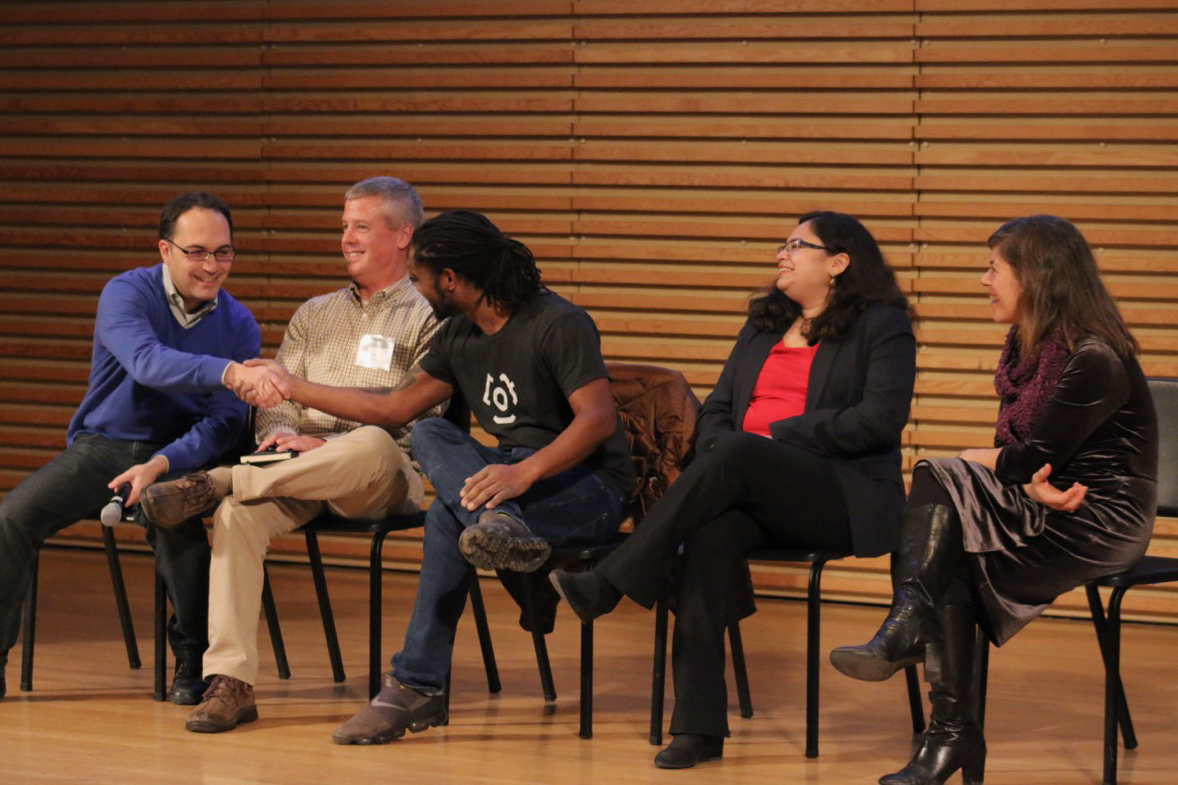
 Enlarge
Enlarge
The symposium was chaired by Prof. Rada Mihalcea and co-chaired by Toyota Professor of Artificial Intelligence Satinder Singh Baveja. Aurelia Bunescu was the lead local organizer, with help from several student volunteers.
The symposium was generously sponsored by Voxel51 (silver sponsor), and by Spark Ann Arbor, TD Ameritrade, and Ithaka (bronze sponsors).
About the AI Lab
The Michigan AI Lab was founded in 1988 as an outgrowth of the Computer Vision Research Lab (CVRL) as faculty involved in other aspects of AI had joined Michigan. The scope of the lab broadened to encompass areas like cognitive architectures, natural language processing, intelligent tutoring systems, genetic algorithms, logical reasoning, and multiagent planning.
The AI Lab originally shared the Advanced Technology Laboratory (ATL) building (now occupied by Biomedical Engineering) with the Advanced Computer Architecture Laboratory (ACAL), which subsequently moved to the EECS Building. ATL was originally the Printing Services Building, and its large open basement area was a perfect home for various (large!) robotic systems, including a massive PUMA arm and many mobile robots. Faculty in other departments who worked on robotic systems shared the facilities.
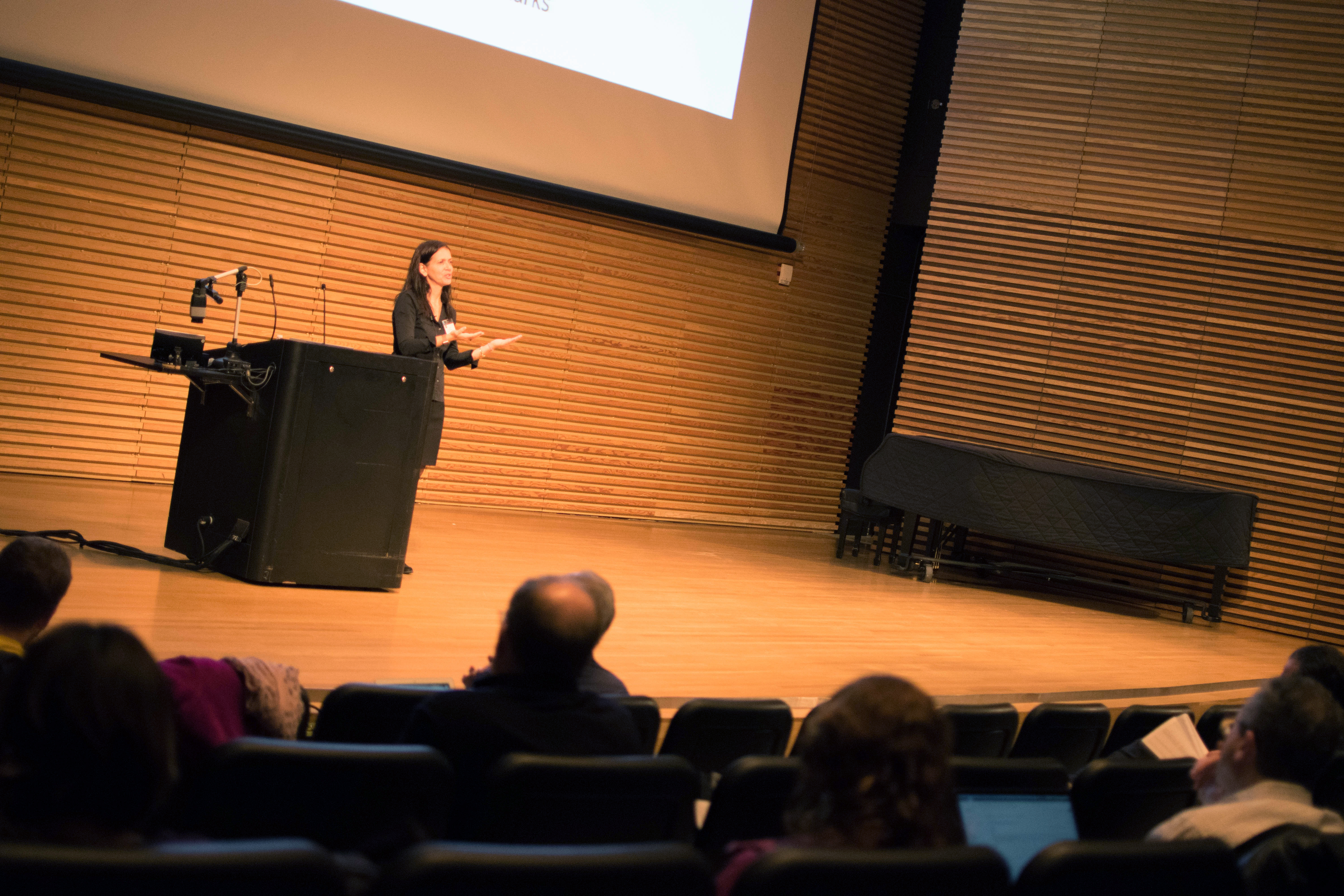
 Enlarge
Enlarge
From its inception, the AI Lab has taken a broad, integrated view of AI. For example, a collaboration between faculty and students involved in vision, planning, and robotics led to a team from Michigan winning the very first AAAI Mobile Robot Competition in 1992.
For the rest of the 1990’s, members of the AI Lab continued work on mobile robotics, including as part of DARPA-sponsored efforts to develop unmanned ground vehicles.
The lab continued to grow from 1990 into the early 2000s, as faculty continued to collaborate with other units. These projects included cross-campus work on digital libraries and computer music. In 2005, the AI Lab joined the rest of CSE in the new Beyster Building, where it has grown to nearly 20 faculty and research staff. Prof. Rada Mihalcea serves as its current director.
 MENU
MENU 
